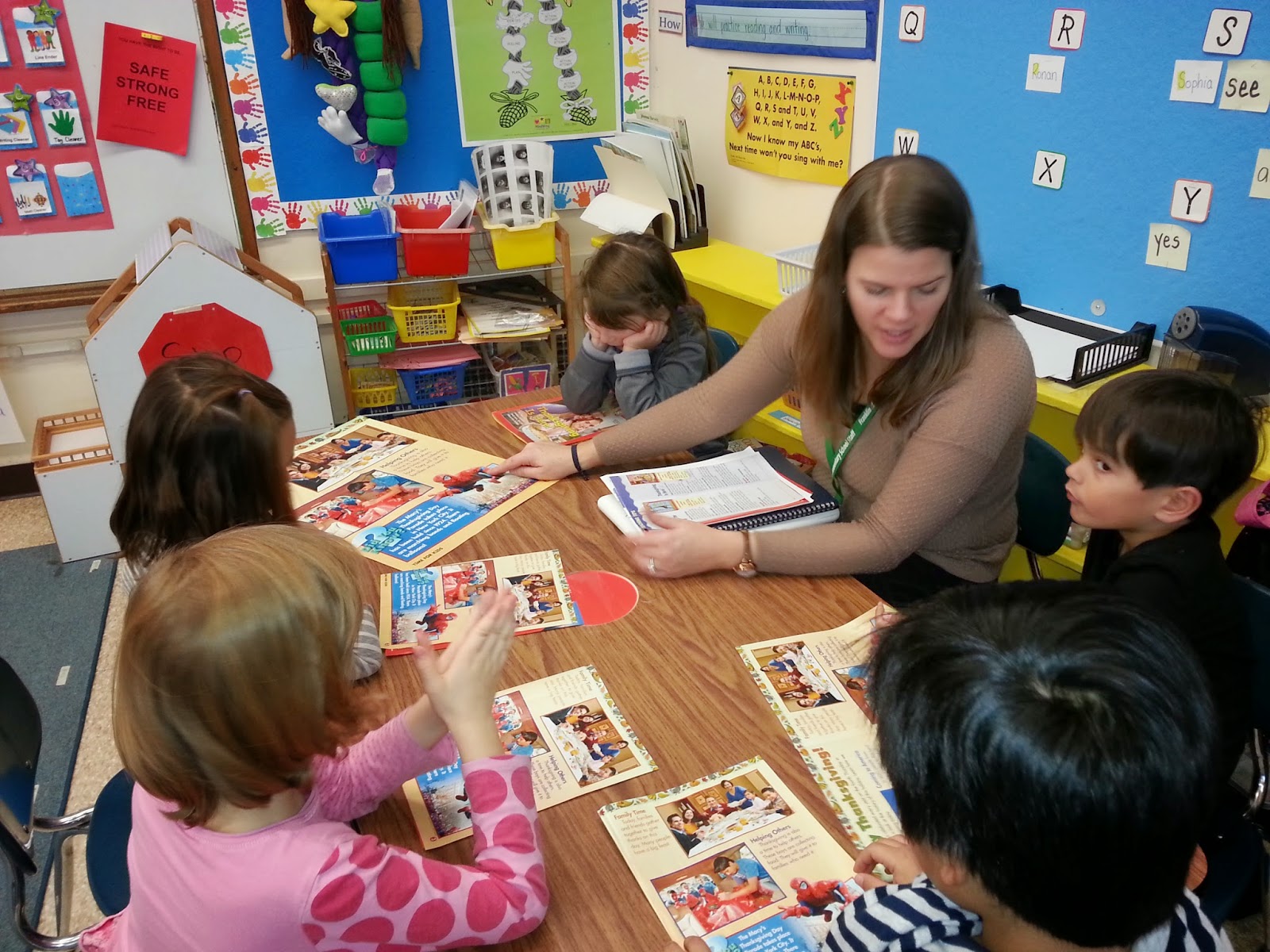Tuesday, December 23, 2014
Tuesday, November 25, 2014
I'm Thankful For . . .

Pumpkins!
Through different reading genres, a beginner 2nd grader learned all about the fall season, including pumpkins and how they grow. We read Pumpkin Pumpkin by Jeanne Titherington and other fiction and non-fiction books.
This funny poem connected to previous lessons and introduced new vocabulary related to pumpkins. The poem was even shared with the whole class during a Morning Meeting.
Vocabulary: glad, round, ground
Phonics: "ou" sound
*HAPPY THANKSGIVING!*
The Benefits of Buddies
New country, new school, new culture...It's not unusual for students to feel anxious when they first come to this country; therefore, newcomers to the Franklin School are sometimes paired with an older buddy to help them feel welcomed and comfortable in this unfamiliar environment.
At the beginning of the school year, a beginner 2nd grader from China was paired with a more experienced 4th grader who also speaks Mandarin.
The two boys had fun reviewing the rules of "Go Fish" and practicing the common language (and the ABCs!) needed to play this game.
Examples of language:
"It's your turn." "It's my turn."
"Do you have a _____?"
"Yes, I have a ______." "No, go fish."
We all learned something new too--how to say "Good game!" in Mandarin!
At the beginning of the school year, a beginner 2nd grader from China was paired with a more experienced 4th grader who also speaks Mandarin.
The two boys had fun reviewing the rules of "Go Fish" and practicing the common language (and the ABCs!) needed to play this game.
Examples of language:
"It's your turn." "It's my turn."
"Do you have a _____?"
"Yes, I have a ______." "No, go fish."
We all learned something new too--how to say "Good game!" in Mandarin!
ELLs Kindergarten & Grade 1
Students in Kindergarten are working on expressing their understanding of texts read aloud through conversation. Here they are learning about how and why Thanksgiving is celebrated. They are responding to typical questions that teachers ask when checking for students' understanding of text.
Vocabulary: feast, parade
Question/Prompts to promote key understandings within text:
Tell some of the ways people celebrate Thanksgiving.
What are some Thanksgiving foods?
Questions/prompts to promote key understandings beyond the text:
How is Thanksgiving today different from the first Thanksgiving? How is it similar?
Can you think of a food that is eaten on Thanksgiving that was not in the text?
~~~~~~~~~~~~~~~~~~~~~~~~~~~~~~~~~~~~~~~~~~~~~~~~~~~~~~~~~~~~
Students in First Grade are reading Nursery Rhymes. They are working on rhyming, building vocabulary, building background cultural knowledge, and reading fluency. Leah Castrovillari (teaching in the photograph) is a Lesley University student who is working 6 hours a week alongside Emily Núñez to support English Language Learners in grades 1 and 2.
Vocabulary/Grammar: bare, strike/struck, crown (top of head), tumbling, fetch, great (big), spout, wee (little), frightened
ELLs Grade 2
Students in Second Grade are seen here discussing a book on Mexico. They are working on building academic vocabulary and conversation skills through reading books related to their Social Studies curriculum.
The students are practicing the academic conversation skill of summarizing by asking and answering questions.

Examples of language:
Question: "What have we read so far?" Answer: "In summary..."
Q: "What have we discussed/read so far?" A: "In summary..." or A:"Based on the text, we can say that..."
Q: "What is the main idea?" A:"The main idea of the text seems to be..."
Q: "What is the text mostly about?" A:"This is mostly about..."
Students in another Second Grade classroom are seen working to publish their narrative writing for sharing with parents.
Students learned expected language in narrative text (below).
Transition Words: First, Next, Then, After that, Finally
Grammar: simple past tense, irregular past tense verbs
Phrases: Last week, One day, On Saturday


Monday, November 3, 2014
Welcome!
Welcome to the new Franklin School ELL Blog. We are very excited to keep parents informed of what is being taught and learned at Franklin. We will be updating this blog twice monthly with pictures and information about what students are learning in English.
Subscribe to:
Comments (Atom)






